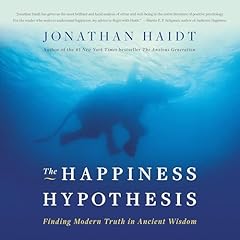
Reaching Down the Rabbit Hole
A Renowned Neurologist Explains the Mystery and Drama of Brain Disease
No se pudo agregar al carrito
Add to Cart failed.
Error al Agregar a Lista de Deseos.
Error al eliminar de la lista de deseos.
Error al añadir a tu biblioteca
Error al seguir el podcast
Error al dejar de seguir el podcast
 Exclusivo para miembros Prime: ¿Nuevo en Audible? Obtén 2 audiolibros gratis con tu prueba.
Exclusivo para miembros Prime: ¿Nuevo en Audible? Obtén 2 audiolibros gratis con tu prueba.Compra ahora por $20.53
-
Narrado por:
-
Paul Boehmer
"Tell the doctor where it hurts." It sounds simple enough, unless the problem affects the very organ that produces awareness and generates speech. What is it like to try to heal the body when the mind is under attack? Like Alice in Wonderland, Dr. Allan H. Ropper inhabits a world where absurdities abound:
- A figure skater whose body has become a ticking time-bomb
- A salesman who drives around and around a traffic rotary, unable to get off
- A college quarterback who can't stop calling the same play
- A mother of two young girls, diagnosed with ALS, who has to decide whether a life locked inside her own head is worth living
How does one begin to treat such cases, to counsel people whose lives may be changed forever? How does one train the next generation of clinicians to deal with the moral and medical aspects of brain disease? Dr. Ropper and his colleague answer these questions by taking the listener into a rarified world where lives and minds hang in the balance.
©2014 Dr. Allan H. Ropper and Brian David Burrell (P)2014 TantorLos oyentes también disfrutaron:




















Reseñas de la Crítica
What did you love best about Reaching Down the Rabbit Hole?
It explained Neurosciences so well. I did not understand neurology, now I do.Who was your favorite character and why?
Michael J Fox's story is heartfeltWhat about Paul Boehmer’s performance did you like?
Well done, nice voiceDid you have an extreme reaction to this book? Did it make you laugh or cry?
Yes, it made me want to research more and he gave me direction to do so.Any additional comments?
I recommend this to anyone trying to understand the function of a neurologist.Recovering from a Brain Injury
Se ha producido un error. Vuelve a intentarlo dentro de unos minutos.
And heartbreaking.
Yeah, sometimes the narration is quaint and folksy, but this book is really interesting, really a treat.
Credit-worthy!
What An Absolute Surprise!
Se ha producido un error. Vuelve a intentarlo dentro de unos minutos.
A great book for all neurologists!
Se ha producido un error. Vuelve a intentarlo dentro de unos minutos.
Interesting stories
Se ha producido un error. Vuelve a intentarlo dentro de unos minutos.
well done.
Se ha producido un error. Vuelve a intentarlo dentro de unos minutos.


